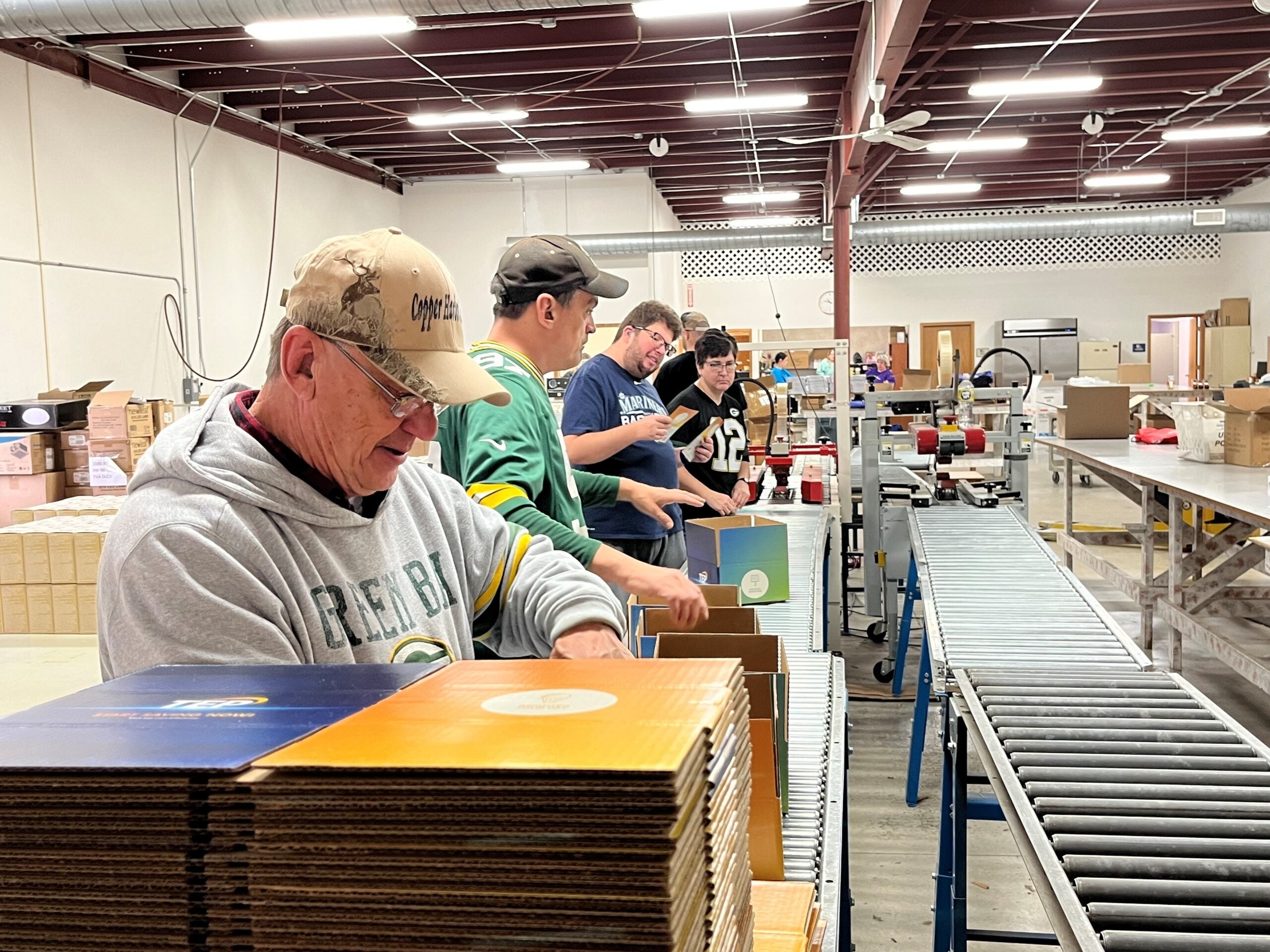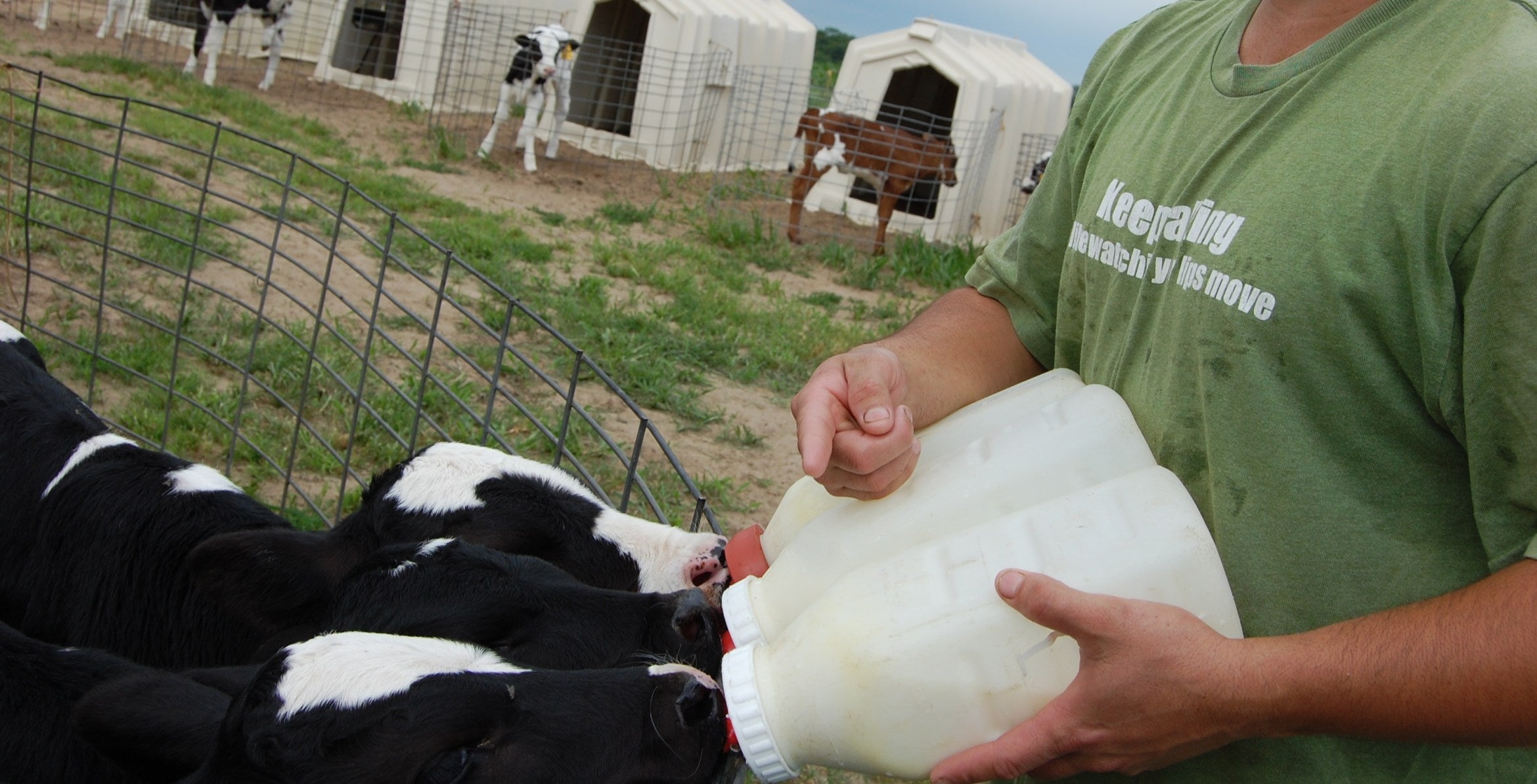Wisconsinites with disabilities could help address the state’s labor shortage, but despite pushes to boost hiring, most employers’ recruitment efforts have ignored potential employees who have disabilities.
A recent survey points out a mismatch between what employers say they value and what they practice when it comes to hiring individuals with disabilities. Most Wisconsin employers say hiring people with disabilities “enriches the diversity climate of the organization and that their workplace is positive and supportive of employing persons with disabilities,” according to a 2022 report from the Wisconsin State Council of the Society for Human Resource Management and St. Norbert College.
But only 21.3 percent of individuals with a disability in the United States were employed last year, according to the U.S. Bureau of Labor Statistics. And the state report found that most employers are ignoring potential employees with a disability in their recruitment efforts.
News with a little more humanity
WPR’s “Wisconsin Today” newsletter keeps you connected to the state you love without feeling overwhelmed. No paywall. No agenda. No corporate filter.
Over 60 percent said they have done nothing to identify national resources to support recruiting people with disabilities, nor have they revised marketing and messaging for those recruitment efforts, according to the report.
The state’s March unemployment numbers, released last week, showed the state continues to experience record-low unemployment at 2.5 percent. But the labor shortage continues. Wisconsinites with disabilities could help address the issue, but they face obstacles in participating in the labor force.
“Sentiment isn’t enough — most Wisconsin workplaces are not prepared to take simple actions to increase inclusion,” the Society of Human Resource Management/St. Norbert report said. “Ensuring that disability is a key component of inclusion will only happen when workplaces make disability a central part of (Diversity, Equity and Inclusion) strategy.”
Matt Glowacki is diversity, equity and inclusion director for the Wisconsin State Council of the Society for Human Resource Management. He said the Americans with Disabilities Act applies to people with physical disabilities as well as non-apparent disabilities.
“Disability is one of the most inclusive-oppressed identities that’s out there,” he said. “Everybody either is disabled already, or they will be disabled, or they will love someone (who is disabled).”
Non-apparent disabilities can be associated with the term “neurodivergence,” which is used to describe differences in brain function. Neurodivergence is not the same as disability or mental illness, but it can be associated with diagnosed autism, ADHD, dyslexia and other learning disabilities, as well as anxiety and depression.
“Neurodiverse populations are one of the very large populations of people that experience challenges from disability, but disability is not what people typically think of,” Glowacki said. “Normally, when people think of disability, they think of me, a person who was born without any legs, who uses a wheelchair.”
He said low levels of employment among individuals with disabilities can be attributed to employment barriers, like transportation, or a lack of reasonable accommodations in the workplace. Often, he said the onus is placed on the individual to advocate for their own accommodations at work, which can be a struggle.
“One of the largest barriers to getting help in the workforce is the stigma that comes with self identifying in order to get the help, especially in competitive work environments because nobody ever wants to be seen as less than,” he said. “Few people who are experiencing their disability even know how to advocate for themselves because they’re so scared.”
When employers succeed at providing a workplace that’s welcoming to disabled individuals, Glowacki said it often doesn’t come from a corporate diversity initiative. Rather, he says it typically originates from a place of compassion and understanding from lived experiences.
“It’s because the owner of the business had a child who was disabled, or the owner of the business was able-bodied, and then they went to war, and they came back and they started a business, from a wheelchair or with whatever accommodations they needed,” he said.
Northeast Wisconsin program sees success in addressing the labor shortage, employing neurodiverse individuals
While advocates say more needs to be done to recruit and retain people with disabilities, one program in northeast Wisconsin has seen success since launching in 2020.
Aspiro — a Green Bay-based service provider that gives job training and day programs to individuals with disabilities — launched the Group Supported Employment program in October 2020. Aspiro has seen demand for the program grow in response to the state’s labor shortage, said Joe Stocks, the organization’s community exploration manager.
Through the program, a job coach takes groups of three to eight workers to job sites at 12 businesses across northeast Wisconsin, he said.
“We’re going where the good jobs are (and) where the good fits are,” Stocks said. “They’re working alongside all the rest of the workers at the different businesses, and they’re getting that valuable experience and socialization of just being in the community.”
One company that benefited from the program is AriensCo, a Brillion-based manufacturer of power equipment.
Jesse Nagan, director of operations at the company’s snow equipment plant, said his previous employer hired several workers from Aspiro, so when the Group Supported Employment program launched, he saw it as an opportunity to find talent.
He said the partnership has provided another avenue to find people, providing 25 to 30 workers to fill five positions for four-hour shifts daily on a rotating schedule.
“We say we’ve got five positions that we have available, and they’ll work with their different team members and make sure that they always have five people to be able to fill it,” Nagan said. “So it’s not always necessarily the same group of five.”
He said Aspiro clients help assemble parts for snowblowers and operate machinery. Not only have those employees helped address staffing shortages, but Nagan said they’ve also improved the company culture at AriensCo.
“It’s really seamless to be able to work with Aspiro and their team,” he said. “They’re providing good quality and their team members learn pretty quickly and get up to speed pretty fast.”
Wisconsin Public Radio, © Copyright 2025, Board of Regents of the University of Wisconsin System and Wisconsin Educational Communications Board.






